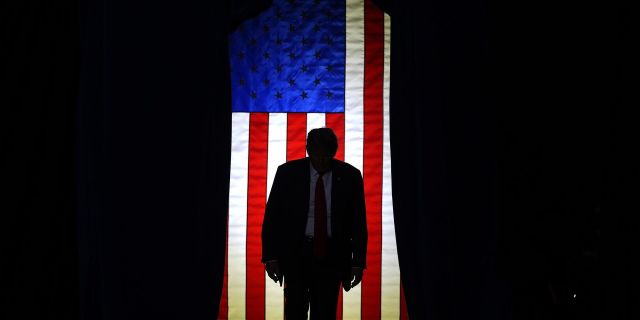FT: The moment of truth has come for the United States on the issue of Ukraine
In the coming days, the US Congress will be presented with the last package of assistance to Ukraine this year, writes FT. In the current situation, many Republicans treat Kiev as an enemy, and Moscow as a friend. Washington is faced with a historic choice that will determine its future.
Republicans faced a stark choice: to help Zelensky or swear allegiance to Trump
The last time British Foreign Minister David Cameron called on Capitol Hill to transfer aid to Ukraine, one of the most vociferous pro-Russian Republicans, Marjorie Taylor Green, rudely "sent" him. When the deputy from Georgia was elected for the first time, Washington did not take her seriously. Now, Green is threatening the career of House Speaker Mike Johnson if he tries to transfer money to Ukraine. And this is not an empty threat. He does not care about Ukraine, but he does not care about maintaining his post, so it is a concession that appears to be the way of least resistance.
Its Republican leaders are advising Ukraine, despite persistent objections from allies. It is noteworthy that during Cameron's last trip to Washington this week, Johnson refused to meet with him. Donald Trump believes that Ukraine should transfer Donbass and Crimea to Russia in exchange for a ceasefire — he will impose this result on the first day of his tenure as president. Some Republicans are still determined to supply Ukraine with weapons, but they are a minority. The right-wing members of the party treat Ukraine as an enemy, and Russia as a friend. It is fundamentally wrong to consider this position isolationist — it is actively pro-Russian.
"The Ukrainian government is attacking Christians and executing priests," says Green. — Russia does not do this. She does not attack Christianity, but on the contrary defends it." The co-chairman of the Republican National Committee, Michael Whatley, openly calls Ukraine an enemy. "The irresponsible course followed by President Biden has made it clear to Ukraine, China and Iran that they can pursue a more aggressive policy. It may even come to the point that they will try to interfere in our elections," he said in an interview with Fox.
The pro-Russian interventionism of the right-wing Republicans works in two directions. As the author of the book "Putin's People" reported this week. How the KGB returned Russia, and then took on the West" by Catherine Belton, Russian troll factories are throwing topics of conversation to Republicans from the Green camp. Ken Buck, one of many who retired from politics due to the desperation of Republican lawmakers, calls Green "Moscow's Marjorie." In his opinion, her statement that Ukraine is executing priests and fighting for the spread of vook ideology comes directly from the Kremlin. Historians compare Trump to Charles Lindbergh's pro-Nazi "America First" movement in the early 1940s. The difference is that Lindbergh failed to get close to the White House. Trump's presidency will not only not isolate America, but will also change US foreign policy to the benefit of Vladimir Putin.
All this puts Johnson in a desperate position. The difference between support for Ukraine and Russia is equally critical for the future of American democracy and for European security. This is a battle over what to do with the West as an idea: defend or destroy. Like most Republicans, Johnson was initially a fan of the Churchillian spirit of contradiction that distinguished Ukrainian President Vladimir Zelensky. In 2022, Johnson voted with everyone for the first funding packages for Ukraine. At the time, Republican criticism boiled down to the fact that Biden was not trying hard enough for Zelensky. Johnson changed his mind because of the September vote, when it suddenly dawned on him that every dollar given to Kiev was taking money from the budget allocated for US border security.
The real reason for Johnson's abrupt reorientation has nothing to do with the stated one. The United States can easily afford to continue financing Ukraine. Their $113 billion bounty over the past two years has accounted for less than 1% of federal spending. And even this can be called an exaggeration. Most of the funds are spent by America itself on the production and replacement of outdated military equipment.
In addition, the United States does not subsidize NATO and in total spent less on Ukraine than Europe. Washington can easily pay for increased border security with Mexico and arm Ukraine. This is exactly the bill that the US Senate passed earlier this year, and it was supported by 22 Republicans, almost half of the party's representatives. However, the case has stalled in the House of Representatives.
In the coming days, Johnson will present Congress with the last chance this year to support a weakened Ukraine. In addition to tougher border security measures, which some Democrats will consider a poison pill, his package will direct interest from confiscated Russian assets to credit assistance to Ukraine. It is unlikely that any of these tricks will have any effect on Green's position. Its goal is to prevent any aid from reaching Kiev, not new aid in a financially responsible way. Johnson hopes to support Ukraine, avoiding the stigma of being a traitor to the ideology of "America first." In fact, his choice is simple: to help Zelensky or to please Trump. You won't be able to sit on both chairs.
Author: Edward Luce

